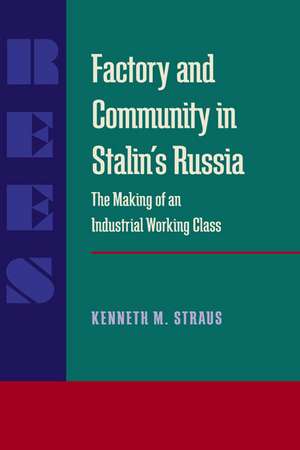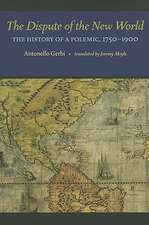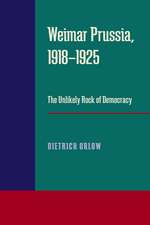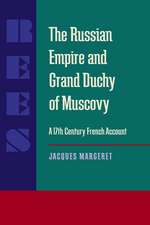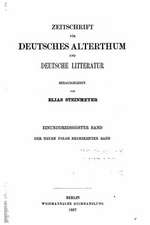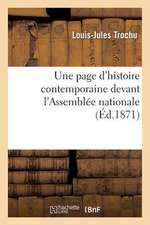Factory and Community in Stalin’s Russia: The Making of an Industrial Working Class: Russian and East European Studies
Autor Kenneth M. Strausen Limba Engleză Paperback – 15 ian 1998
Kenneth Straus weaves together many threads in Russian social history to develop a new theory of working-class formation in the years of Stalin’s First Five Year Plan. In so doing, he addresses a long-standing debate among historians by suggesting new answers to an old question: Was there social support for the Stalin regime among the Soviet working class during the 1930s, and if so, why?
Straus argues that the keys for interpreting Stalinism lie in occupational specialization, on the one hand, and community organization, on the other. He focuses on the daily life of the new Soviet workers in the factory and community, arguing that the most significant new trends saw peasants becoming open hearth steel workers, housewives becoming auto assembly line workers and machine operatives, and youth training en masse rather than occupations categories in the vocational schools in the factories, the FZU.
Tapping archival material only recently available and a wealth of published sources, Straus presents Soviet social history within a new analytical framework, suggesting that Stalinist forced industrialization and Soviet proletarianization is best understood within a comparative European framework, in which the theories of Marx, Durkheim, and Weber best elucidate both the broad similarities with Western trends and the striking exceptional aspects of the Soviet experience.
Straus argues that the keys for interpreting Stalinism lie in occupational specialization, on the one hand, and community organization, on the other. He focuses on the daily life of the new Soviet workers in the factory and community, arguing that the most significant new trends saw peasants becoming open hearth steel workers, housewives becoming auto assembly line workers and machine operatives, and youth training en masse rather than occupations categories in the vocational schools in the factories, the FZU.
Tapping archival material only recently available and a wealth of published sources, Straus presents Soviet social history within a new analytical framework, suggesting that Stalinist forced industrialization and Soviet proletarianization is best understood within a comparative European framework, in which the theories of Marx, Durkheim, and Weber best elucidate both the broad similarities with Western trends and the striking exceptional aspects of the Soviet experience.
Din seria Russian and East European Studies
-
 Preț: 422.97 lei
Preț: 422.97 lei -
 Preț: 332.65 lei
Preț: 332.65 lei -
 Preț: 141.48 lei
Preț: 141.48 lei -
 Preț: 428.75 lei
Preț: 428.75 lei - 15%
 Preț: 678.74 lei
Preț: 678.74 lei -
 Preț: 433.53 lei
Preț: 433.53 lei -
 Preț: 238.43 lei
Preț: 238.43 lei -
 Preț: 388.79 lei
Preț: 388.79 lei -
 Preț: 436.25 lei
Preț: 436.25 lei -
 Preț: 295.91 lei
Preț: 295.91 lei -
 Preț: 326.41 lei
Preț: 326.41 lei -
 Preț: 127.24 lei
Preț: 127.24 lei -
 Preț: 123.55 lei
Preț: 123.55 lei -
 Preț: 315.41 lei
Preț: 315.41 lei -
 Preț: 171.58 lei
Preț: 171.58 lei -
 Preț: 485.99 lei
Preț: 485.99 lei - 15%
 Preț: 493.66 lei
Preț: 493.66 lei -
 Preț: 474.45 lei
Preț: 474.45 lei -
 Preț: 391.67 lei
Preț: 391.67 lei -
 Preț: 502.16 lei
Preț: 502.16 lei -
 Preț: 431.62 lei
Preț: 431.62 lei -
 Preț: 113.42 lei
Preț: 113.42 lei -
 Preț: 422.00 lei
Preț: 422.00 lei -
 Preț: 395.54 lei
Preț: 395.54 lei -
 Preț: 179.30 lei
Preț: 179.30 lei -
 Preț: 397.45 lei
Preț: 397.45 lei -
 Preț: 470.60 lei
Preț: 470.60 lei -
 Preț: 363.26 lei
Preț: 363.26 lei -
 Preț: 461.94 lei
Preț: 461.94 lei -
 Preț: 352.86 lei
Preț: 352.86 lei -
 Preț: 272.52 lei
Preț: 272.52 lei -
 Preț: 349.81 lei
Preț: 349.81 lei -
 Preț: 184.58 lei
Preț: 184.58 lei -
 Preț: 317.63 lei
Preț: 317.63 lei -
 Preț: 468.65 lei
Preț: 468.65 lei -
 Preț: 432.57 lei
Preț: 432.57 lei -
 Preț: 182.40 lei
Preț: 182.40 lei -
 Preț: 389.76 lei
Preț: 389.76 lei -
 Preț: 426.63 lei
Preț: 426.63 lei -
 Preț: 465.76 lei
Preț: 465.76 lei -
 Preț: 126.00 lei
Preț: 126.00 lei -
 Preț: 283.50 lei
Preț: 283.50 lei -
 Preț: 403.43 lei
Preț: 403.43 lei - 23%
 Preț: 568.69 lei
Preț: 568.69 lei - 23%
 Preț: 565.89 lei
Preț: 565.89 lei - 23%
 Preț: 556.25 lei
Preț: 556.25 lei -
 Preț: 385.91 lei
Preț: 385.91 lei -
 Preț: 422.97 lei
Preț: 422.97 lei -
 Preț: 385.53 lei
Preț: 385.53 lei -
 Preț: 423.35 lei
Preț: 423.35 lei
Preț: 424.88 lei
Nou
Puncte Express: 637
Preț estimativ în valută:
81.30€ • 85.10$ • 67.67£
81.30€ • 85.10$ • 67.67£
Carte tipărită la comandă
Livrare economică 01-15 aprilie
Preluare comenzi: 021 569.72.76
Specificații
ISBN-13: 9780822985846
ISBN-10: 0822985845
Pagini: 378
Dimensiuni: 152 x 229 x 25 mm
Greutate: 0.5 kg
Ediția:1
Editura: University of Pittsburgh Press
Colecția University of Pittsburgh Press
Seria Russian and East European Studies
ISBN-10: 0822985845
Pagini: 378
Dimensiuni: 152 x 229 x 25 mm
Greutate: 0.5 kg
Ediția:1
Editura: University of Pittsburgh Press
Colecția University of Pittsburgh Press
Seria Russian and East European Studies
Recenzii
“In this provocative study of industrial workers in the 1930s, Kenneth Straus argues that industrial workers by the mid-1930s had become integrated into Soviet society, forming a new working class that had struck a bargain with the regime, an ersatz social contract that provided for improved status in exchange for loyalty. . . . Straus offers a powerful argument and challenge for a theoretical exploration of social relations in understanding the experience of Soviet industrialization. . . . It deserves a wide audience and it should stimulate a lively debate.”
—Europe-Asia Studies
—Europe-Asia Studies
“Straus’s work gives scholars of the Soviet working class much food for thought. The concept of Russia’s dual labor market and Straus’s contention that its demise led to increased social cohesion in the 1930s-40s provides a very useful framework for further research.”
—H-Net Reviews
—H-Net Reviews
“Written in a clear style with judicious commentary on previous historiography, this monograph is very accessible to the nonspecialist. Simply put, this is a very good book and deserves a wide readership.
—Journal of Modern History
—Journal of Modern History
Notă biografică
Kenneth M. Straus (Ph.D. University of Pennsylvania, 1990) draws, in this study, both on academic training in the fields of Russian/soviet history and comparative labor history and also on work experience as a welder in shipbuilding. He conducted research for this study in Moscow in 1986-87 and in 1992, and completed it while teaching at Binghamton University, 1990-1997.
Descriere
Kenneth Straus contemplates the question: Was there social support for the Stalin regime among the Soviet working class during the 1930s, and if so, why? In his well-researched answer he analyzes the daily lives of Soviet workers, and compares the ideologies of western and Soviet thought.
